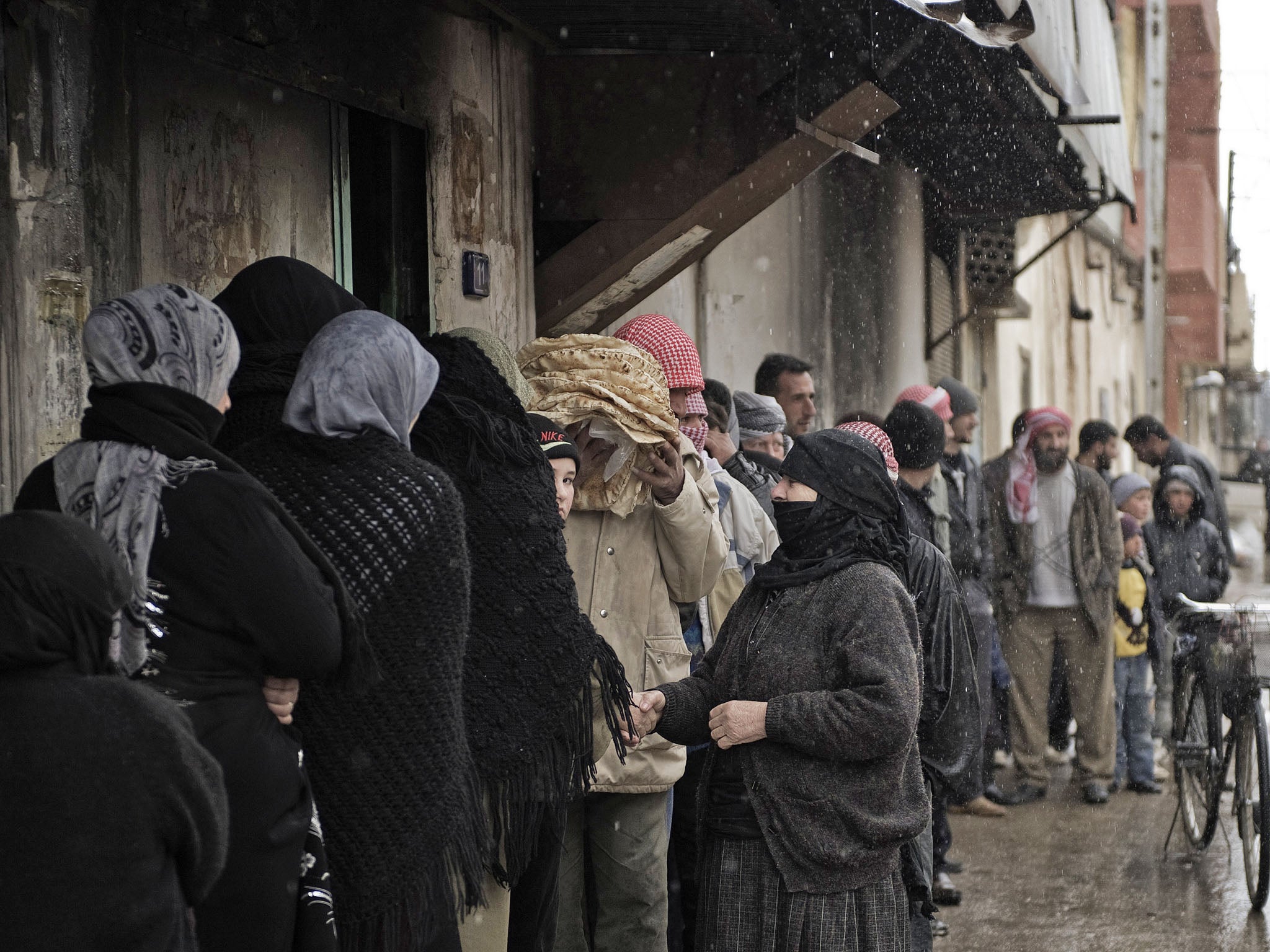Food shortages in Syria send prices soaring

Plenty of food lines the shelves in Abd al-Razzak's warehouse, but only for those who can afford the sky-high prices needed to cover the bribes it took to transport it there.
"There's a powdered milk factory in Latakia, but there are 13 security checkpoints to go through," al-Razzak explained, sitting in the darkened warehouse in this forlorn northwestern town that has no electricity, no running water and trash pickup only when gas can be found for the trucks. "We have to pay a bribe at each checkpoint."
The United Nations' World Food Program (WFP) warned this week that the escalating violence in Syria is causing food shortages throughout the country. Factories have been bombed. Roads and farm fields are pockmarked with deep craters left by missiles. Thieves have held up trucks carrying food, as demand has swollen in towns where at least 1.2 million Syrians have fled to escape the fighting, according to official estimates cited by the WFP.
"The food security situation for many Syrians is rapidly deteriorating with the intensification of the conflict and its expansion to more areas," the agency said in a statement Tuesday. "Bread shortages are becoming more common with long queues in front of bakeries, a shortage of fuel, damage sustained by bakeries, and an increased demand from fresh waves of internally displaced people."
Some of the most acute food shortages are in northern Syria, where fighting has been intense since the summer.
The situation in Sarmada, which is controlled by the rebel Free Syrian Army, has been alleviated somewhat by its proximity to Turkey, barely a mile away. At the border between the two countries, trucks filled with food purchased by Sarmada's merchants line up to cross into Syria amid beckoning calls from smugglers offering travelers an alternative route through the mountains. Just 10 miles south of Sarmada, according to al-Razzak, grocery shelves are bare, but few people have the gasoline to drive that far, even for food.
And Turkish foodstuffs often taste different. Al-Razzak mixes flour from Turkey with Syrian flour to make bread with a taste and texture Syrians might recognize. He said he is still able to get food from across Syria, often from factories that are continuing production in the owners' homes. His shelves hold marmalade from the city of Idlib, mayonnaise from Aleppo, canned meat from Damascus.
Because his transportation costs have gone up 16-fold, he now must charge $1 for a sack of flour he used to sell for 15 cents.
Many Syrians can't afford his wares at any price. Sarmada's pre-uprising population of 17,000 has almost doubled due to an influx of refugees displaced by the violence. About 850 families are destitute, said Abdallah Abu Khaled, manager of a small warehouse where the town dispenses donated food on the rare occasions some reaches Sarmada. They are being sheltered in the town's nine schoolhouses.
Khaled brought 10 food bags to one school as night fell, calling out the names of each family waiting patiently in a courtyard where a hopscotch grid was faintly visible on the concrete. The food was donated by Rania Kisar, a Syrian-American woman who quit her job in university admissions in Dallas and moved this spring to Syria, helping in territory held by rebels. She pays for the food with money she raises from friends and acquaintances, and by selling jewelry and headbands in patriotic colors made by Syrian girls.
A woman named Jamila took one of Kisar's food baskets, each packaged in a sack the size of a garbage bag, back to the classroom where she has found shelter with her five children. As she stepped inside, the children were playing in a fort they had fashioned by folding the thin mattresses they sleep on. A table held the only food she had left — a box of tea, a can of meat, two cans of tuna fish and two cans of beans. A faint, yellowish light came from a kerosene lamp atop the table.
"We got these 20 days ago," Jamila said of her sparse, dwindling supply. The sack of food from Kisar was enough to feed the family for a week or more.
Near the village of Qah, about five miles from Sarmada down a road dotted with stones and barrels set up by rebel forces at security checkpoints, the sound of women talking and children playing arose from more than 500 small tents staked on a hilltop overlooking Turkey. The lights twinkling in the Turkish valley below make Qah look all the more dreary. The only light emanated from candles stuck in tin bowls, flickering inside a few tents.
One day this week, guns were fired into the air while rebel soldiers argued with a local man whom some residents suspected was stealing donated food. The argument continued the next day when a man who lives in the camp shouted into a cellphone while talking with a local official about the situation.
"Nobody knows we're here," he said. "Nobody brings us any food."
Join our commenting forum
Join thought-provoking conversations, follow other Independent readers and see their replies
Comments